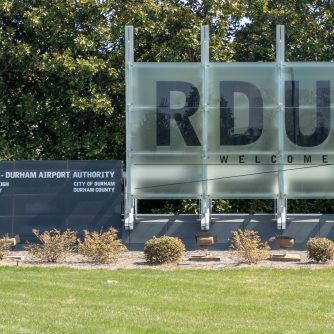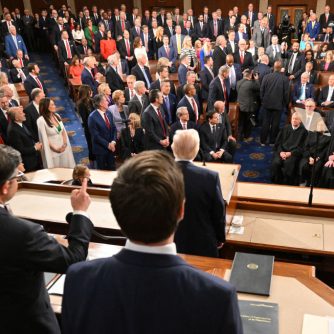On this episode of Carolina Newsmakers, Don Curtis is joined by Brad Crone, a seasoned political consultant and President of Campaign Connections, to delve into the complexities of the upcoming 2024 elections. Crone offers his insights on the presidential race, North Carolina’s gubernatorial contest, and the impact of down-ballot races, shedding light on what’s shaping up to be one of the most critical election cycles in recent memory.
Presidential Race: North Carolina as a Battleground State
North Carolina continues to hold its position as a key battleground state in the 2024 presidential election. According to recent polls, former President Donald Trump has regained a narrow lead in the state, with a one-point advantage over Vice President Kamala Harris, the Democratic candidate. Crone highlights the importance of the state’s 15 electoral votes, noting that both campaigns are deploying significant resources to secure a win.
Nationally, the race remains tight in other battleground states like Pennsylvania, Georgia, Nevada, and Wisconsin. Crone predicts that the outcome may hinge on voter turnout, particularly among younger voters who tend to favor Harris but are historically less likely to cast their ballots.
North Carolina’s Gubernatorial Race: Robinson vs. Stein
In the race to succeed Governor Roy Cooper, Attorney General Josh Stein holds a notable lead over Lieutenant Governor Mark Robinson, according to the latest polls. Crone attributes Stein’s advantage to Robinson’s recent controversies, including allegations involving inappropriate internet activity. While Robinson faces criticism from within his own party, Crone cautions against dismissing his chances entirely, given North Carolina’s historically competitive elections.
The race, however, isn’t just about the candidates. Crone discusses the broader implications of the gubernatorial contest on down-ballot races, including those for the Council of State and General Assembly. He emphasizes that Robinson’s performance could either boost or hinder other Republican candidates on the ticket.
Down-Ballot Races: A Competitive Landscape
Several down-ballot races in North Carolina are shaping up to be closely contested. Crone mentions critical contests for positions like attorney general, lieutenant governor, and commissioner of agriculture. Many of these races are within the margin of error, highlighting the high stakes for both parties.
One race to watch is the attorney general contest between Democratic Congressman Jeff Jackson and Republican Congressman Dan Bishop. Crone describes it as a barnburner, with polls showing a razor-thin margin. Similarly, other Council of State races, such as those for state treasurer and superintendent of public instruction, are expected to be highly competitive.
Election Security and Voter Turnout
Crone praises North Carolina’s election security measures, which include bipartisan oversight and robust reconciliation processes. He reassures voters that the state’s tabulation systems are not connected to the internet, ensuring a tamper-free process. Despite these safeguards, voter turnout remains a key concern, especially in regions recovering from Hurricane Helene, which could disrupt voting in parts of western North Carolina.
The outcome of the elections, Crone asserts, will largely depend on ground game operations. Both Democrats and Republicans are ramping up their voter engagement efforts, with significant emphasis on mobilizing voters in suburban and rural areas.
Key Issues Influencing Voters
As the campaigns heat up, several key issues are shaping voter preferences. Immigration remains a strong point for Trump, resonating with his base and some independent voters. Meanwhile, economic factors like inflation and job growth are central to Harris’s messaging. Crone notes that the administration’s response to recent natural disasters and ongoing conflicts in the Middle East could also sway undecided voters in the final weeks before Election Day.
Looking Ahead: A Long Election Night
Crone predicts a lengthy vote-counting process, particularly in battleground states like North Carolina. He explains that election results will likely be delayed due to the state’s rigorous security measures, which require physical transportation of ballot data. As a result, it may take several days—or even weeks—for the final results to be confirmed.
Despite the challenges ahead, Crone remains optimistic about the integrity of the electoral process. He encourages North Carolinians to participate fully, whether through early voting, absentee ballots, or casting their vote on Election Day.





